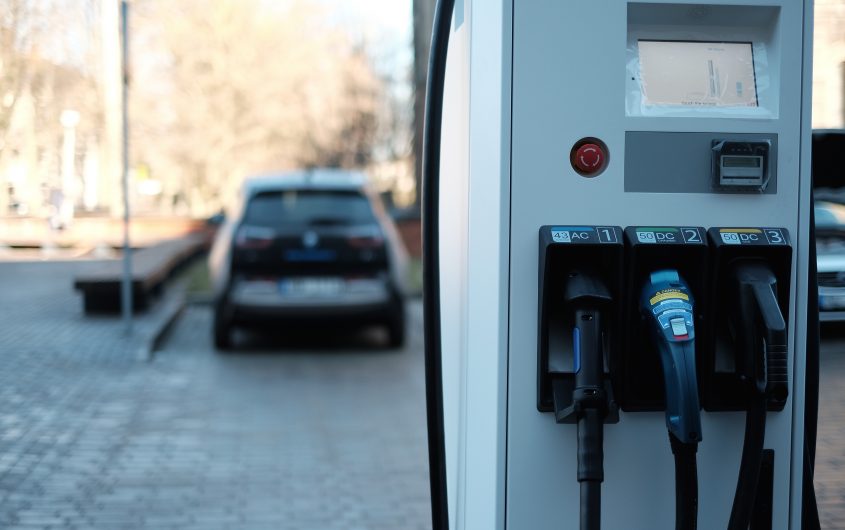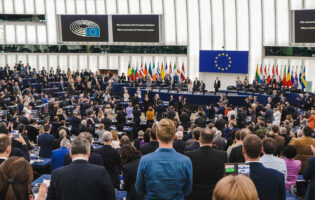
Kārlis Dambrāns via Flickr
U.S. and German Energy Policy at a Crossroads? The Transatlantic Partners and the Future of Energy Cooperation

Sonja Thielges
Institute for Advanced Sustainability Studies
Sonja Thielges is a Geoeconomics Non-Resident Fellow and was a DAAD/AICGS Research Fellow from mid-March to mid-May 2019 and explored foreign policy interests in Germany and the U.S. related to the countries’ energy transitions. In Germany, she is a senior research associate in the project “Pathways to Sustainable Energy” at the Institute for Advanced Sustainability Studies (IASS) in Potsdam. Sonja’s research interests include the international dimension of the energy transition, foreign energy policy, the G20 energy agenda, as well as U.S. energy and climate policy. Her research has been published in studies, policy papers, online blogs, and academic publications.
Prior to IASS, Sonja worked in the Americas Division at the German Institute for International and Security Affairs (SWP) in Berlin, focusing on U.S. climate and energy policy. She was a visiting researcher at the University of Michigan’s Center for Local, State, and Urban Policy in Ann Arbor in 2014 and previously also worked on projects at the Environmental Policy Research Centre (FFU), the Institut für Europäische Politik (IEP) Berlin, and the Centre International de Formation Européenne (CIFE). In 2017/2018, Sonja was a participant in the AICGS project “A German-American Dialogue of the Next Generation: Global Responsibility, Joint Engagement,” sponsored by the Transatlantik-Programm der Bundesrepublik Deutschland aus Mitteln des European Recovery Program (ERP) des Bundesministeriums für Wirtschaft und Energie (BMWi). She completed an M.A. in North American Studies, Political Science, and Modern History at Freie Universität Berlin and Indiana University Bloomington and holds a PhD in political science from Freie Universität Berlin. Her PhD thesis studied climate policy discourses in the U.S. Rust Belt states.
The U.S. and Germany are moving in fundamentally different directions with their energy policies. Germany has embarked on its “Energiewende,” an energy strategy based on renewable energy and energy efficiency as well as the phase-out of fossil fuels and nuclear energy. It is an important building block in the country’s climate protection endeavors. The U.S. under the Trump administration has abandoned its national and international climate commitments. It is pursuing an “Energy Dominance” strategy that seeks to expand the production of U.S. coal, natural gas, and oil. This strategy marks a significant departure from the Obama administration, which pursued a climate action plan focused on fostering clean energy in the U.S. and abroad.
This policy shift in the U.S. is not universally perceived as straightforward policy reversal. Conversations with energy experts in Washington, DC, in the spring of 2019 yield two different interpretations. Some believe that “not much has changed” in terms of climate and sustainable energy since President Trump took office. To others, “everything has changed” and the situation for sustainable energy is “very bad,” even “an embarrassment.” How can there be such different perceptions of current energy policy? And what does this mean for the potential of transatlantic clean energy cooperation?
This essay sheds some light on these questions. It shows that there is truth to both sides: The Trump administration’s energy policy, in contrast to its predecessor’s, no longer focuses on fostering sustainable energy. This creates some tensions with the climate and energy policy goals of the German government. However, in its international efforts, the U.S. continues to support renewable energy and energy efficiency. Shared energy policy interests between the U.S. and Germany thus persist and the essay concludes with some ideas on how this could translate into transatlantic energy cooperation.









